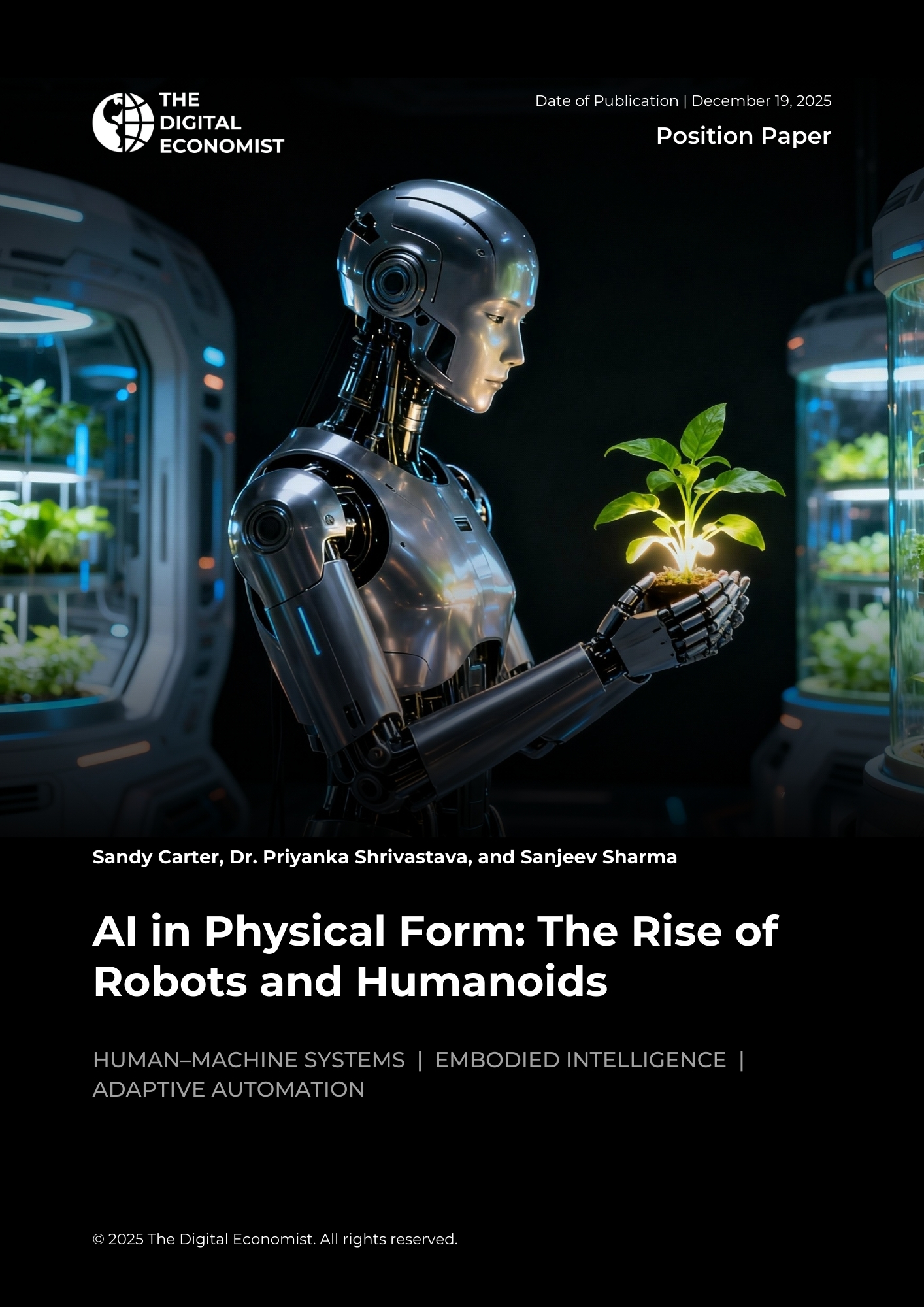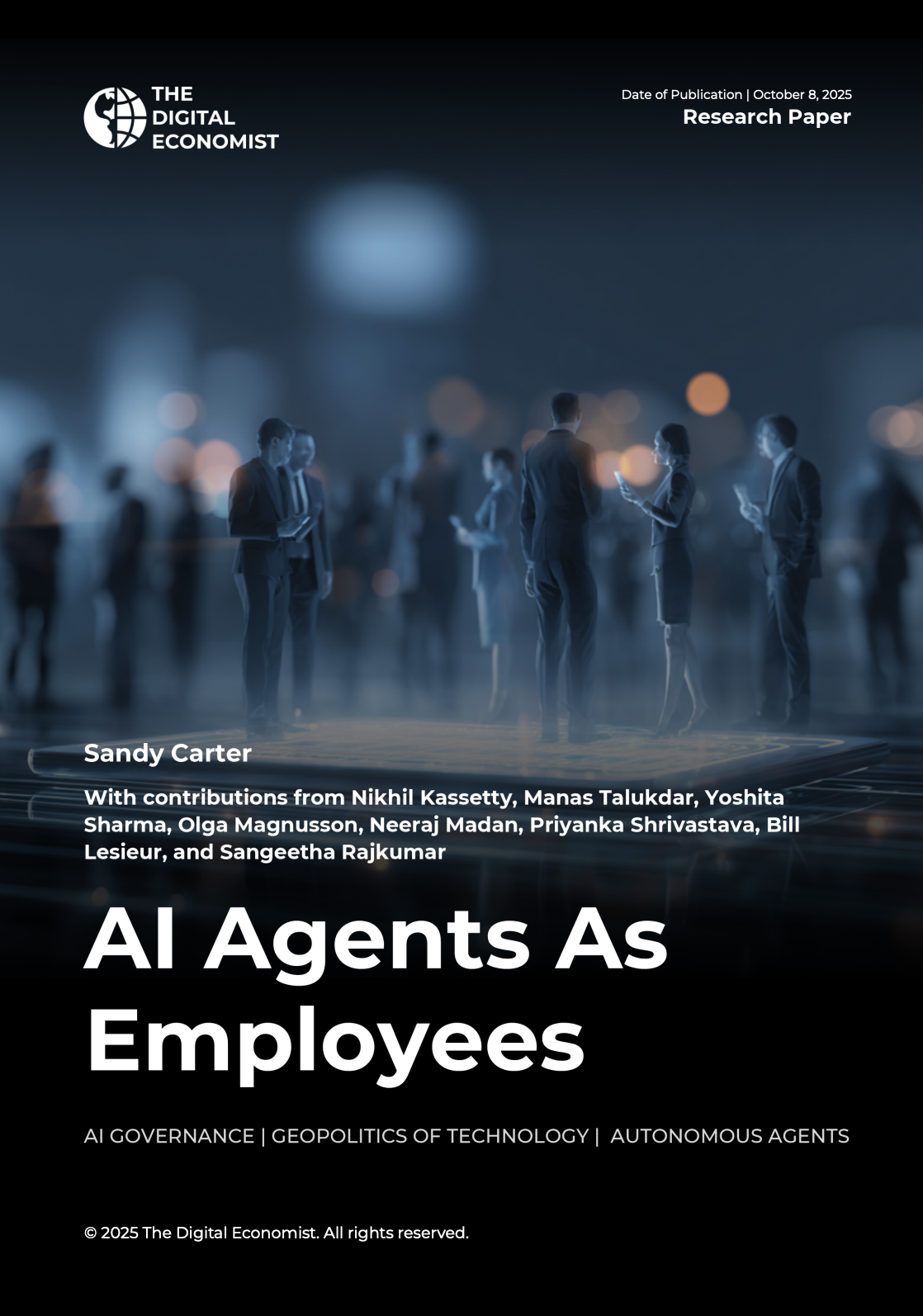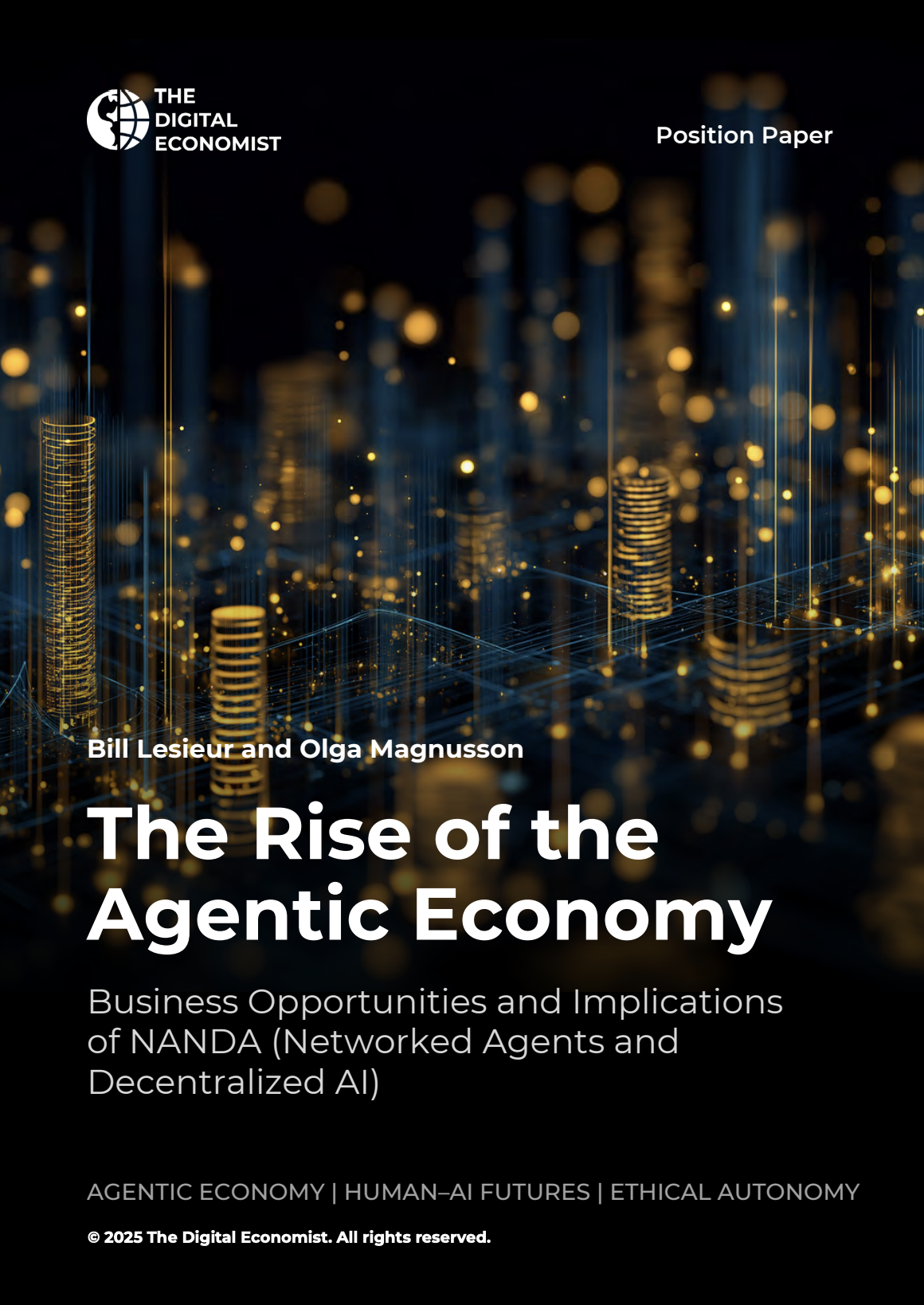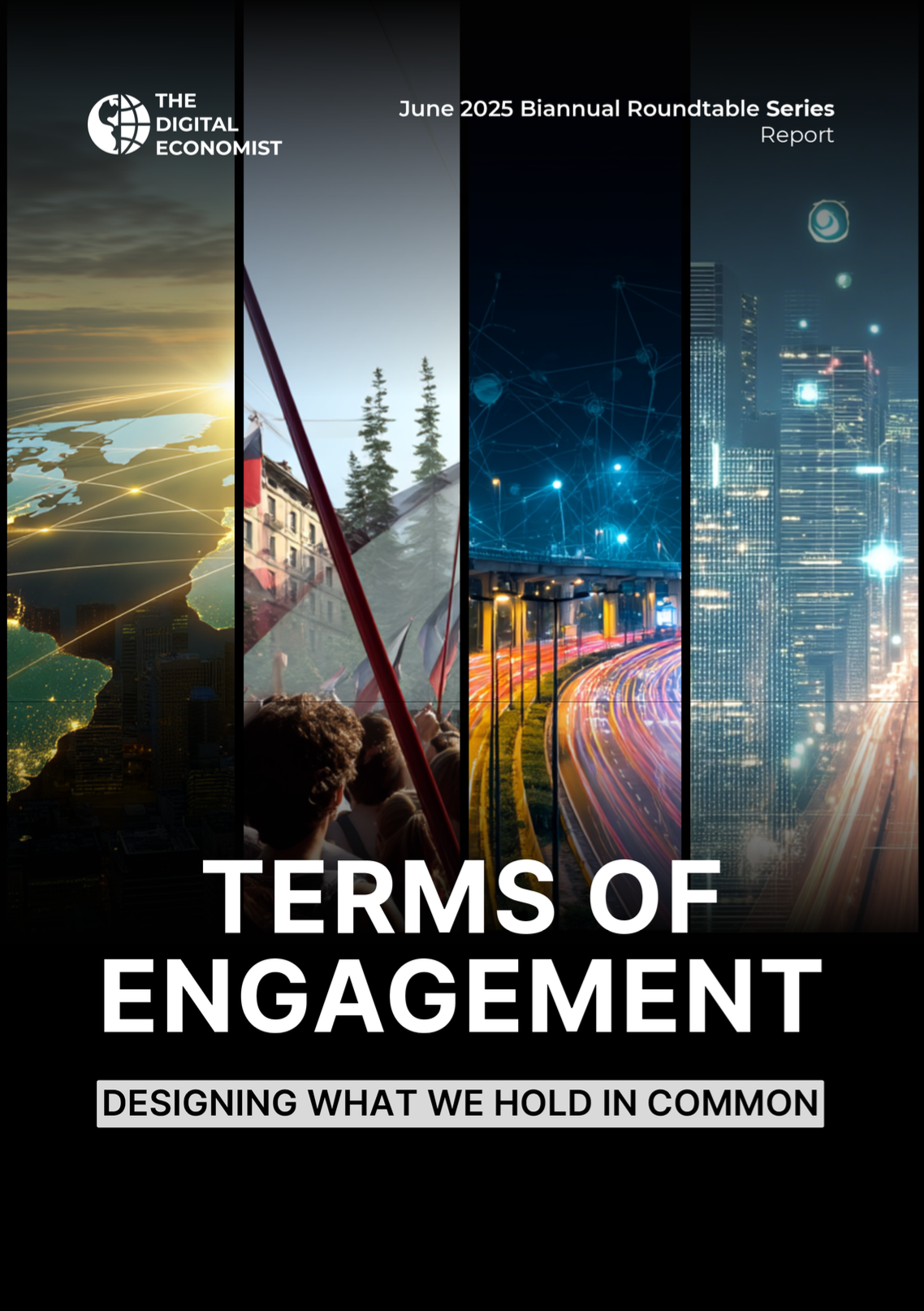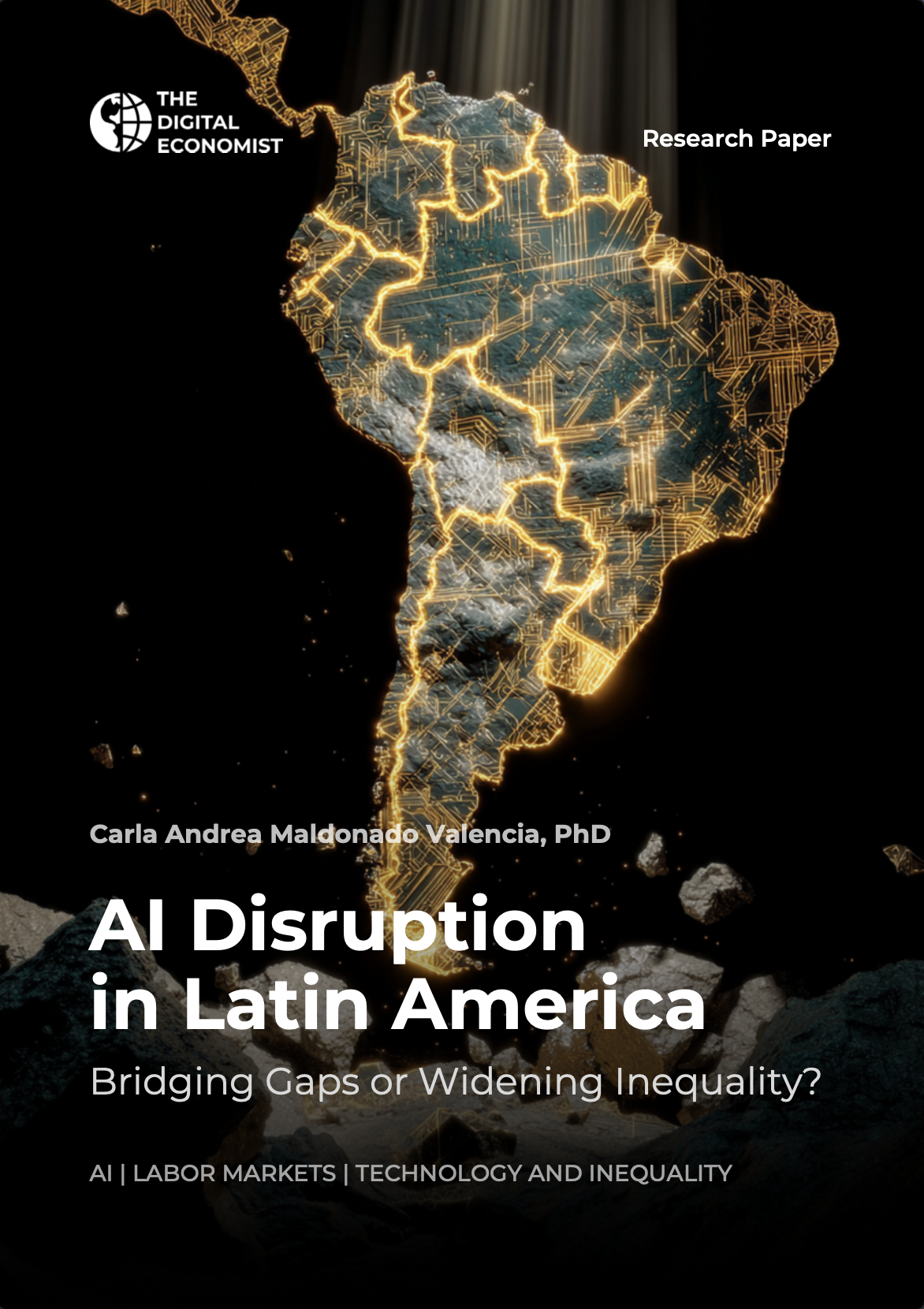Explore Expert Insights, Strategic Research, and Global Thought Leadership
Clear thinking for complex systems.
Our publications translate systems complexity into actionable insight—through original research, strategic frameworks, and global roundtable takeaways.
Featured
Highlighted insights from our latest research and thought leadership.
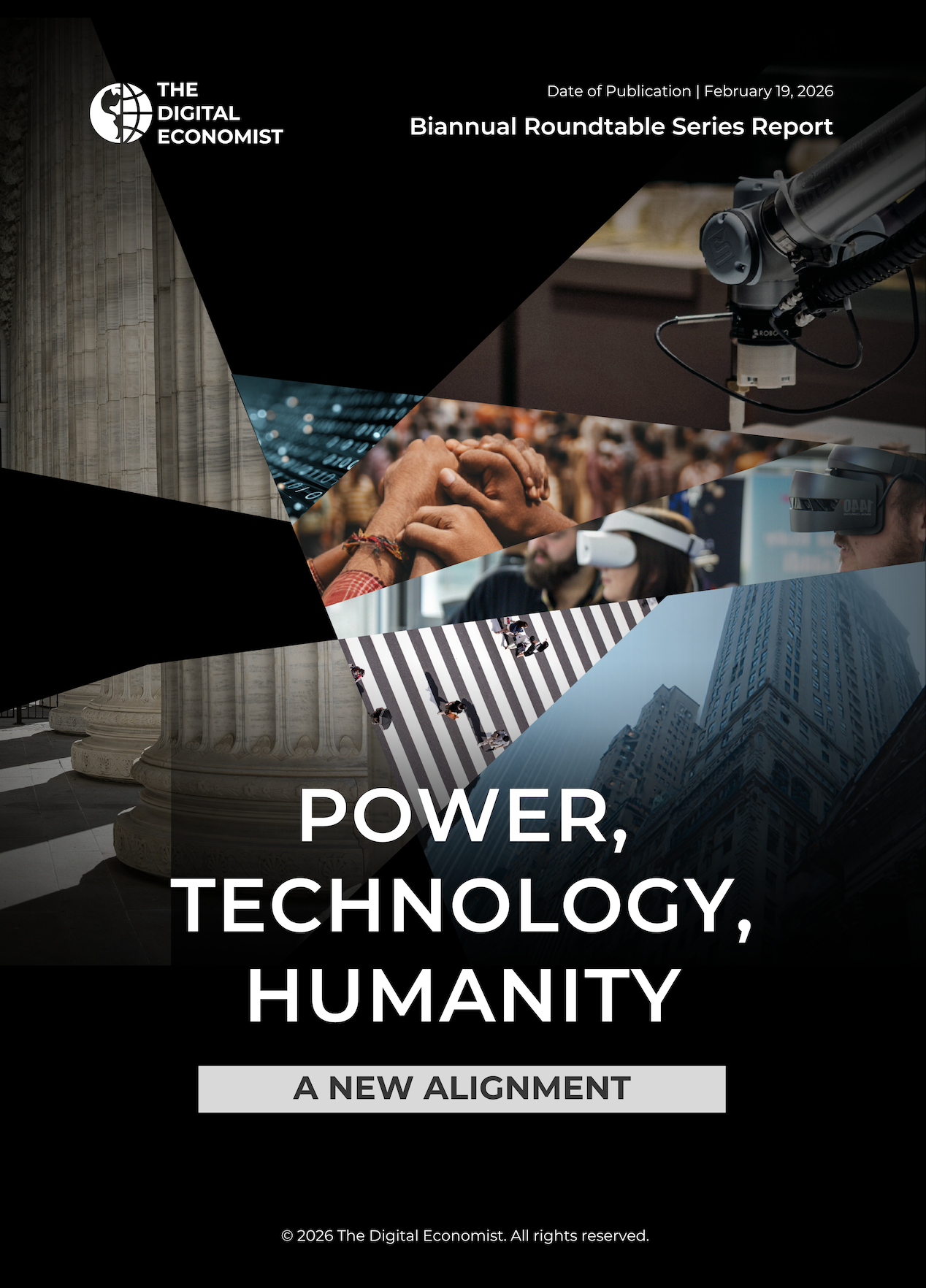
This roundtable series report documents The Digital Economist’s December 2025 convening, Power, Technology, Humanity: A New Alignment, which brought together cross-sector leaders to examine how accelerating technologies are reshaping economic power, governance structures, and human agency. The report situates emerging systems—agentic AI, tokenized assets, digital currencies, satellite networks, and data-center infrastructure—as the new operating layers of the global economy. Rather than treating these developments as isolated innovations, the series explores how power is increasingly embedded in platforms, protocols, and infrastructure—and asks what it will take to align these systems with dignity, resilience, and shared prosperity.
Across ten thematic sessions—spanning agricultural tokenization, ethical AI governance, women’s health, humanoid robotics, digital money, climate resilience, education, space infrastructure, and regenerative data systems—the report surfaces three consistent through-lines: governance must become reflexive and adaptive; equity must be embedded in incentives, data, and ownership structures; and infrastructure decisions now carry moral weight, shaping whether technological systems deepen extraction or strengthen regenerative, inclusive economies. Each session distills tensions between innovation speed and institutional capacity, global frameworks and local realities, automation and human judgment, and efficiency gains and distributional fairness.
The report does not offer a manifesto or prescriptive blueprint. Instead, it synthesizes expert contributions into a structured exploration of how leadership, policy, system design, and cultural context must evolve together. Its central contention is that alignment will not emerge organically through market forces alone. Deliberate stewardship—grounded in accountability, inclusivity, and long-term institutional legitimacy—is required to ensure that power, technology, and humanity are consciously shaped as interdependent elements of a new global operating system.

This expert insights paper examines the rapid rise of autonomous AI agents through the cases of OpenClaw and Moltbook, positioning their viral adoption as a defining moment in the evolution of the agentic economy. It argues that while agents have moved beyond conversational interfaces to autonomous action—sending emails, managing transactions, coordinating schedules, and interacting across platforms—the identity, security, and trust infrastructure required to support this shift has not matured at the same pace. The result is a widening “trust gap,” where technical capability outstrips governance readiness, exposing structural vulnerabilities in how agents are verified, authorized, and supervised.
Drawing on security breakdowns, architectural comparisons, and first-hand deployment experience detailed in the paper, the analysis identifies three core fault lines: the absence of standardized digital identity for agents, the expansion of attack surfaces in high-autonomy systems, and the erosion of trust when guardrails are insufficient or misaligned with real-world risk. By contrasting open, self-governed agents with more controlled enterprise implementations, the paper demonstrates that autonomy exists along a spectrum—and that risk scales in direct proportion to delegated authority when verifiable identity, programmable constraints, and auditable records are not embedded by design.
In response, the paper introduces an “AI First, Human Always” governance framework built on seven interdependent principles: verifiable identity by default, programmable guardrails, proof of action, least privilege and lifecycle management, inclusive-by-design infrastructure, human learning autonomy, and decoupled agency with fiduciary tethering. Together, these principles form a layered governance stack intended to move organizations from experimentation toward trusted deployment at scale. Ultimately, the paper contends that the sustainability of the agentic economy will depend less on model performance and more on institutional maturity—specifically, the systems, standards, and human judgment required to ensure that autonomous agents remain accountable to the people and organizations they represent.
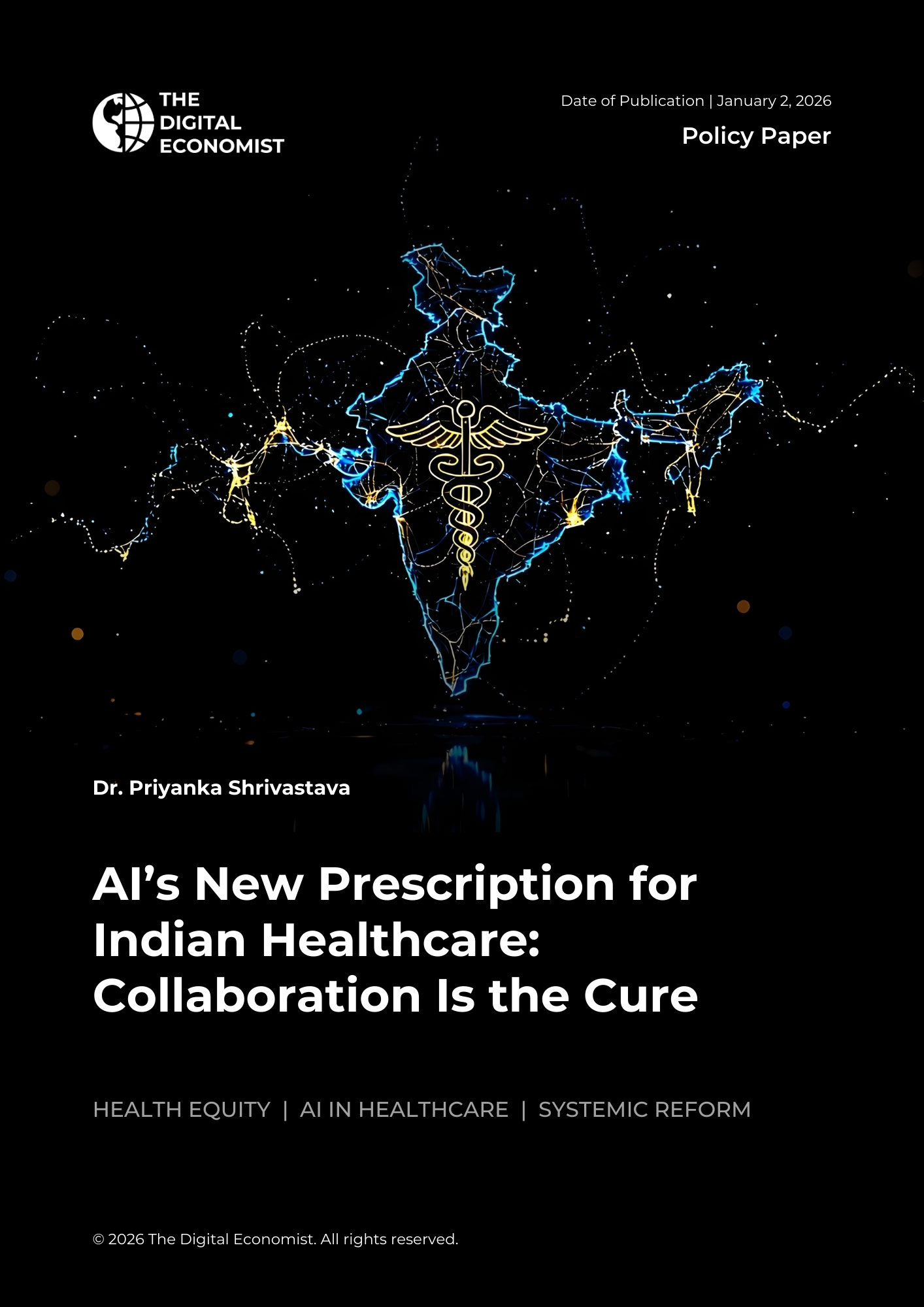
This policy paper examines how artificial intelligence can help address India’s deeply strained healthcare system—marked by workforce shortages, infrastructure gaps, and widening inequities—when deployed through purposeful, cross-sector collaboration rather than isolated technological adoption. It situates AI as a catalyst for change across diagnostics, predictive analytics, operations, and personalized care, while emphasizing that technology alone is insufficient without shared governance, trusted data ecosystems, and institutional alignment.
Drawing on global collaboration models and Indian case studies from both the public and private sectors, the paper outlines how partnerships among government, healthcare providers, technology firms, and research institutions are already delivering measurable impact. It concludes with a three-pillar strategic roadmap focused on infrastructure and policy, ecosystem building, and workforce empowerment—offering policymakers and healthcare leaders a practical framework for leveraging AI to build a more resilient, equitable, and inclusive healthcare system for India
All Article



